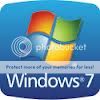Hey guys!
So a long time ago I was given an old XP OEM install by a friend who didn't need it since he was upgrading to Vista.
Since then I've installed and re-installed it numerous times without problem, but a few days ago I talked to a guy that said that what I was doing was essentially illegal, since an OEM version is for my friends computer specifically.
Is that right? Do I really need to buy my own version of an OS, that my friend don't need anyway?
Cheers
So a long time ago I was given an old XP OEM install by a friend who didn't need it since he was upgrading to Vista.
Since then I've installed and re-installed it numerous times without problem, but a few days ago I talked to a guy that said that what I was doing was essentially illegal, since an OEM version is for my friends computer specifically.
Is that right? Do I really need to buy my own version of an OS, that my friend don't need anyway?
Cheers




